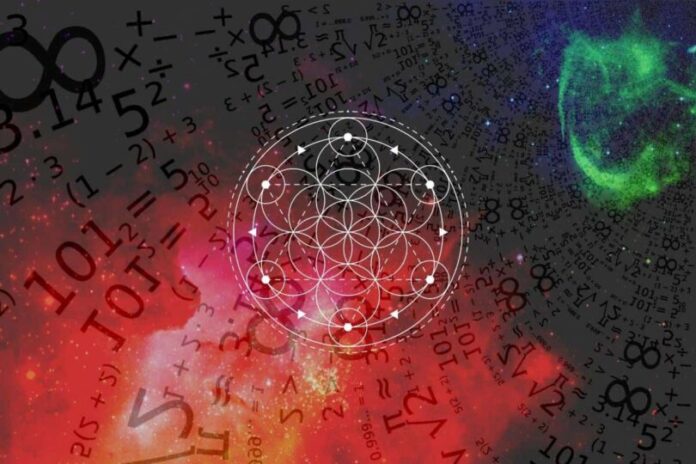
Do you know that every number symbolizes something in different religions? Read to know about the surprising symbolism of numbers in different religions.
If we dive back into history to 30,000 years, we can see that humans have been in a love-hate relationship with numbers. The ancient Babylonians used to observe the planetary movement and use numbers to predict the date and time of eclipses. Likewise, the ancient Egyptians used numbers to predict the likelihood of floods in the Nile.
Besides ancient civilizations, various ancient scholars and philosophers believed that numbers possess mystical power – a power that can change or shape an entire world. Plato was also one of those philosophers who believed that numbers rule all the things of the universe and that’s why he called the study of numbers the highest level of knowledge.
Like Plato, Pythagoreans had firm beliefs that numbers have souls, and using the magical powers of numbers, one may even sneak a peek into the future. To understand the meanings and symbolism of each number, Pythagoreans divide numbers into two groups; odd & even, light & dark, and male & female.
However, numerology has not only been important to mankind on superstitious and mythology grounds but also religious ones. There is the Surprising Symbolism of Numbers in Different Religions which exhibits the extent of indulgence of Numbers in our daily lives. If you are interested to know more about the meaning and symbolism of each number in different religions head over to promanifestation.com.
The Surprising Symbolism of Numbers in Different Religions
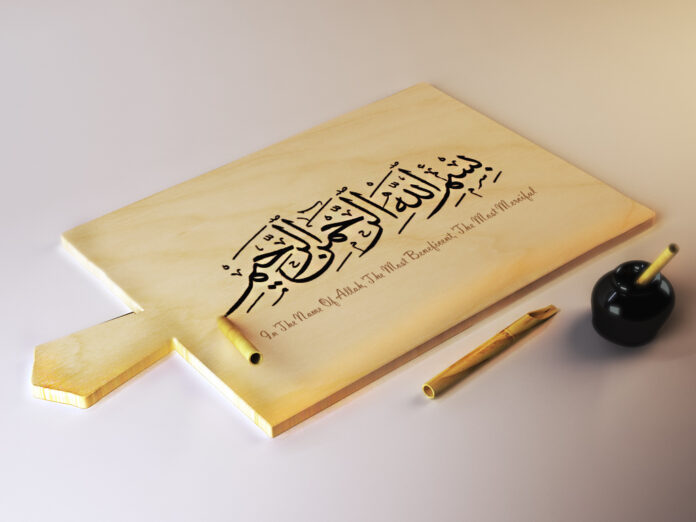
In Islam
In Islam, almost every number has a specific meaning or symbolizes a specific thing. For example, number 1 symbolizes unity and the Shahada of Muslims; there’s no God but Allah. Likewise, number 2 in Islam symbolizes two Eid; Eid Ul Fitr and Eid Ul Azha.
Number 3 is also quite significant in Islam as it represents several Sunnah acts that are performed in a set of three (just as in ablution). Number 4 has represented so many things in Islam such as the Four Caliphates, Four Archangels, Four divine books, Four months in which war is not permitted, and Rub El Hizb which is formed of Quadrilaterals. Likewise, Eid Ul Azha lasts for four days and a woman has to wait for four months and then days after the death of her husband before getting married again.
Number 5 represents five prayers that are obligated to every Muslim and the five pillars of Islam whereas Number 6 symbolizes the six pillars of Iman. Number 7 represents seven gates to hell and seven heavens. Also, this number symbolizes seven rounds around Kabba during the pilgrimage. Lastly, number 8 represents eight angels carrying Allah’s throne.
In Christianity
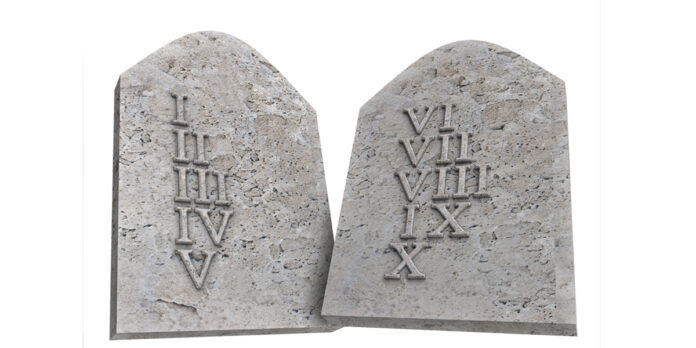
Like in Islam, the Number 1 is the symbol of unity; God is One. However, number two symbolizes a witness based on the disciples Christ sent two by two. Number 3 is a symbol of completion and perfection in Christianity and represents three persons of the Holy Trinity.
Number 4 is the symbol of the earth as it demonstrates four seasons, four directions, etc. Number 5 is a symbol of grace, representing five types of offerings, five books of laws, and five sections of the Book of Psalms.
Number 6 represents humanity in Christianity as it’s mentioned in the Bible that man was created on the sixth day and labored for six days. Number 7 symbolizes spiritual perfection, representing seven spirits, seven churches, and seven gifts.
Number eight is the symbol of a new beginning as according to the Bible, God saved eight people from blood, Christ appeared eight times after resurrection, and newborns are circumcised on the eighth day of their birth.
In Judaism
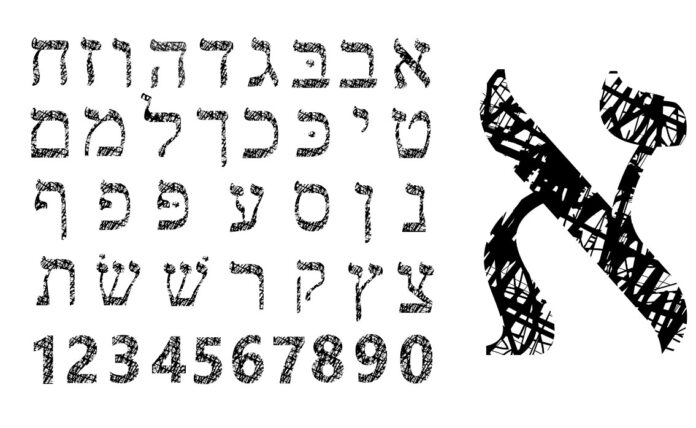
In Judaism, number 1 symbolizes unity – one God of earth and heaven. Number 2 symbolizes two inclinations and two tables of the covenant. Number 3 represents three fathers (Abraham, Issac, Jacob), three sons of Noah, and three holy angels. Also, this number is important to Jews because Torah was given to Jewish people on the third day.
Likewise, the Number 4 symbolizes four mothers, four expressions of redemption, and four wine cups. Also, In Judaism mythology, it’s believed that the earth and heavens have four corners and sides. Number 5 represents five books of the Torah, five sections of Psalms, five knots of tzitzit, and five species of grains.
Number 6 represents six books of Mishnah, six days of creation, and six working days. Number 7 symbolizes the seven laws of Noah, seven pure animals in Noah’s ark, seven days of Pesach and Sukkot, and seven terms of earth and heaven. Lastly, the number 8 represents eight days of circumcision and eight days of sukkot & Chanukah. Also, this number symbolizes a new beginning in Judaism.
In Hinduism
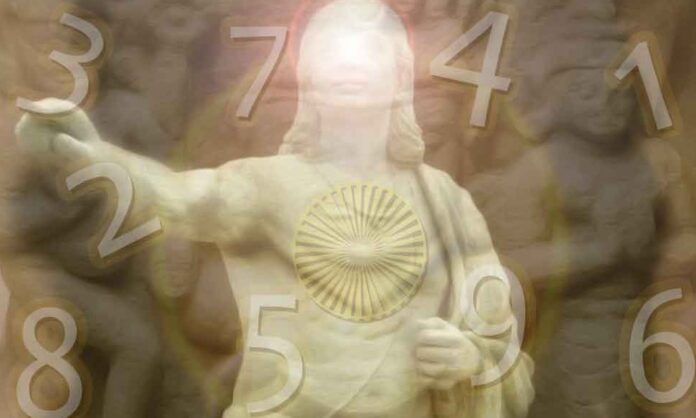
Hinduism is a bit different when it comes to the symbolic meaning of numbers since even the number zero has a special meaning. Zero, in Hinduism, represents Brahman who doesn’t have any qualities or form. It’s a bridge between faith and reason, and metaphysical and physical realms.
Number 1 represents Saguna Brahman with form or qualities. Saguna Brahman is also called Hiranyagarbha or cosmic soul and is known for having exceptional dynamic power and will which he has created the world. Considering this, the number 1 signifies non-duality and the only existence that is behind all the creations.
Number 2 symbolizes duality which every person experiences through his senses and mind. Number 3 represents the Hindu trinity which consists of Prakriti or nature, God, and the creation which both manifest together. Besides, number 3 symbolizes three layers of fire, darkness, light, and nature, three periods of the day (morning, noon, evening), and three phases of life (young, middle, and old age).
Number 4 symbolizes many aspects of life such as the four aims of life, four levels of activity, and four castes or varnas. Number 5 represents the fifth position of the earth in the planetary system, five great elements, and the physical body.
Number 6 symbolizes the human mind which is the sixth sense organ with six senses. Number 7 represents seven worlds in the universe, seven seas, seven wives of Sapta Matraka, and seven sages of Saptarishi.






